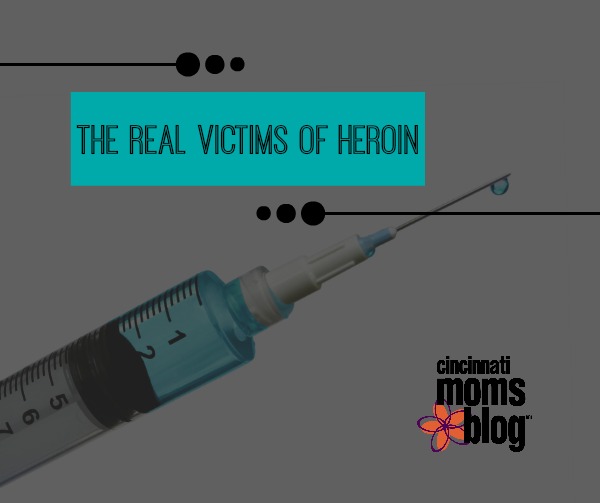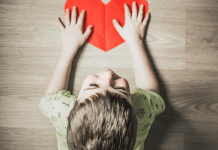 You’d be hard pressed to find someone in Cincinnati who hasn’t in some way been impacted by heroin. If you don’t know anyone personally, you probably know someone who knows someone who has let his or her life drain away into an empty syringe. It is terrifying, in part because so many of the addicts seem like normal people: good kids, from good families who cared for them, loved them, and gave them everything they needed to reach their limitless potential. Heroin addicts aren’t just “others”; perhaps more than any other drug epidemic, the people using come from every income level and background. Regardless of where you live, they are your neighbors…maybe even your friends.
You’d be hard pressed to find someone in Cincinnati who hasn’t in some way been impacted by heroin. If you don’t know anyone personally, you probably know someone who knows someone who has let his or her life drain away into an empty syringe. It is terrifying, in part because so many of the addicts seem like normal people: good kids, from good families who cared for them, loved them, and gave them everything they needed to reach their limitless potential. Heroin addicts aren’t just “others”; perhaps more than any other drug epidemic, the people using come from every income level and background. Regardless of where you live, they are your neighbors…maybe even your friends.
Perhaps because heroin’s impact is felt across such a broad playing field, our collective discourse has taken a tone that differs greatly from the conversation surrounding other substance abuse. Newspapers tell the life stories of the addicts who are gone too soon; they devote whole articles to the analysis of the path they shouldn’t have taken. Heartbroken families share baby pictures and talk about everything their child should have been. They paint a picture of two very different children: the one who used and the one who didn’t. They discuss the very real, chemical nature of addiction and how hard it is to break, even if the addict has reached the point of seeking help (and that frequently never happens). Even the language has changed; instead of writing about ‘drunks’ or ‘junkies’, we use innocuous terms like ‘addict’ and ‘user’. There’s a real purpose to this type of media coverage: it raises awareness. Hopefully it teaches families the signs they need to look for in their own children. It offers a cautionary tale to young people interested in the drug culture. It is a compassionate conversation that clearly shows the devastation heroin wreaks in a life. In a family. In a community.
I’ve noticed something else, though, and it bothers me. As more and more good people succumb to their addiction, the drug and the dealers are seemingly the only ones who bear responsibility for the carnage. The user isn’t at fault; it was the drug. The users, the discourse says, are victims. Except that they aren’t.
Only a couple weeks ago, the highway down the hill from my home was backed up for hours because a driver on heroin lost control and crashed on the side of the road. The force of the crash threw an infant in the car out of his car seat; some witnesses said he easily flew thirty feet in the air before he landed. My precious kindergartener was on the same highway, on his way home from a playdate with a friend; he was so, so close to this terrible accident. And earlier this year, a woman on heroin lost control of her car in our little neighborhood, crashing into the cars parked on the side of the street and landing her car on the sidewalk. That sidewalk was one block from the neighborhood elementary school, and the accident happened just minutes before school let out, flooding that very sidewalk with innocent kids – the same age as my own – walking home with their backpacks and science fair projects. These are not isolated incidents. Ask anyone who works in law enforcement or health care: drugged driving is rampant in our city.
The addicts who caused these accidents are not victims. At some point, inconceivably given what we know about the destructive power of heroin, they made a choice to shoot a needle in their arm in pursuit of the greatest high of their lives. The baby strapped in his car seat, now hooked up to tubes in a hospital? He didn’t get to make a choice. The children who would have been on that sidewalk ten minutes later? They didn’t get to make a choice. They are the only victims here. And let’s not kid ourselves. Every time we strap our babies into their car seats and venture out in our minivans, we are potentially the next victims of someone else’s terrible choice; we’d be fools to somehow think we are immune to this thing.
I honestly don’t have any good answers to offer. I’m angry, and I’m scared. I know that the families of these addicts are riddled with pain and guilt, and I don’t wish to heap more of that on them. I don’t pretend to think I couldn’t have an addict in my own family because I’ve been on this earth long enough to know none of us are exempt. I don’t believe that the blame game does anyone any good. I simply think we need to be honest when we talk about addiction, where it comes from, and what it does. Let’s stop normalizing drug and alcohol use in teens; let’s stop acting as though dumping toxins into their undeveloped brains is an adolescent rite of passage. So many heroin addicts start with “normal” teenage partying. It shouldn’t be normal. And when we talk about the varied paths to addiction, let’s continually emphasize that there’s ALWAYS the option of seeking help instead of seeking harder drugs. It is the harder choice, but it is still a choice. Let’s start talking more about personal responsibility and stop implying that addiction is something tragic that happens to you. Addiction has been labeled a disease, and I don’t dispute that. However, heroin use is not a disease, and it doesn’t just “happen.” You wake up with cancer, but you make a CHOICE to pick up a needle.
Please, for the sake of the babies in their car seats and the kids walking home from school, let’s start telling the truth.













By the very definition of victim, addicts are truly victims. Also, if we want to use your cancer analogy, lets take a look at lung cancer – one of the leading causes of death in America. Guess what causes that…. Addiction. This is truly one of the most closed-minded points of view I’ve ever seen and is very telling that you truly don’t understand addiction. I have so much more to say, but I’ll leave it at that.
Theresa, you took the words right out of my mouth. The author does not understand addiction.
Your comments are well taken. What you say has validity I think. However, where is there responsibility of doctor’s that prescribe narcotics so easily for pain. I know because I broke my toe and to deal with the pain, my doctor (a good doctor) prescribed Vicodin. I immediately DID NOT fill that prescription. That was and I wasn’t going to play with it.
Unfortunately, there are people that don’t know any better, or blindly trust medical professionals. That’s how people get hooked and heroin is a cheap alternative and sounds pretty easy to get. I also know people that bartend. I have told them they are legal drug dealers. Some doctors are that too. What do you think of that?
I totally agree with you that doctors are too quick to give meds and there needs to be accountability for that…there’s a huge discussion that needs to take place surrounding the safety of pain meds and our blind trust in the medical community. That’s why I mentioned the many paths to addiction. I don’t think that the reason for addiction eliminates personal responsibility for it; in fact, I think that responsibility and accountability are key to beating this epidemic. I financially support a heroin treatment center…I believe people can kick this thing. But I can’t imagine how people who lose family and friends to car accidents involving drugged driving feel when they hear addicts called victims.
For some reason, my words did not get in my post correctly. I meant to put the word fire. That was what I would not play with. And where is the responsibility for the doctors that prescribe the narcotic painkillers?